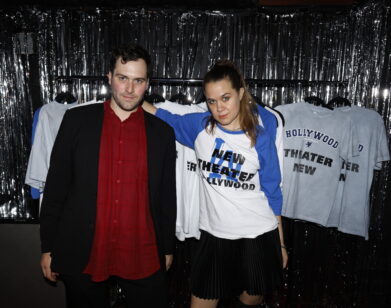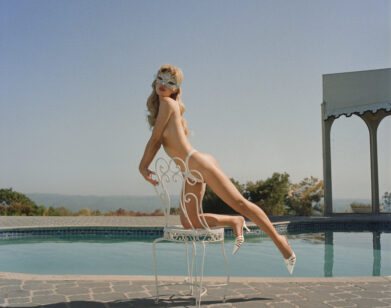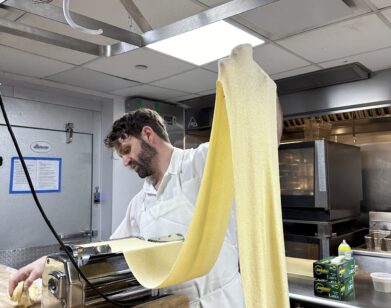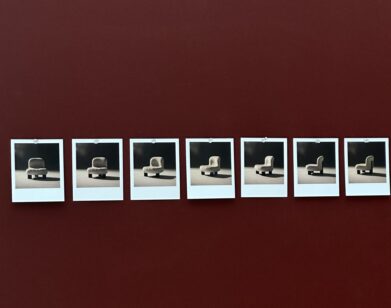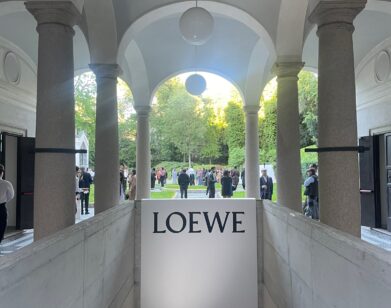Emma Straub, On Location
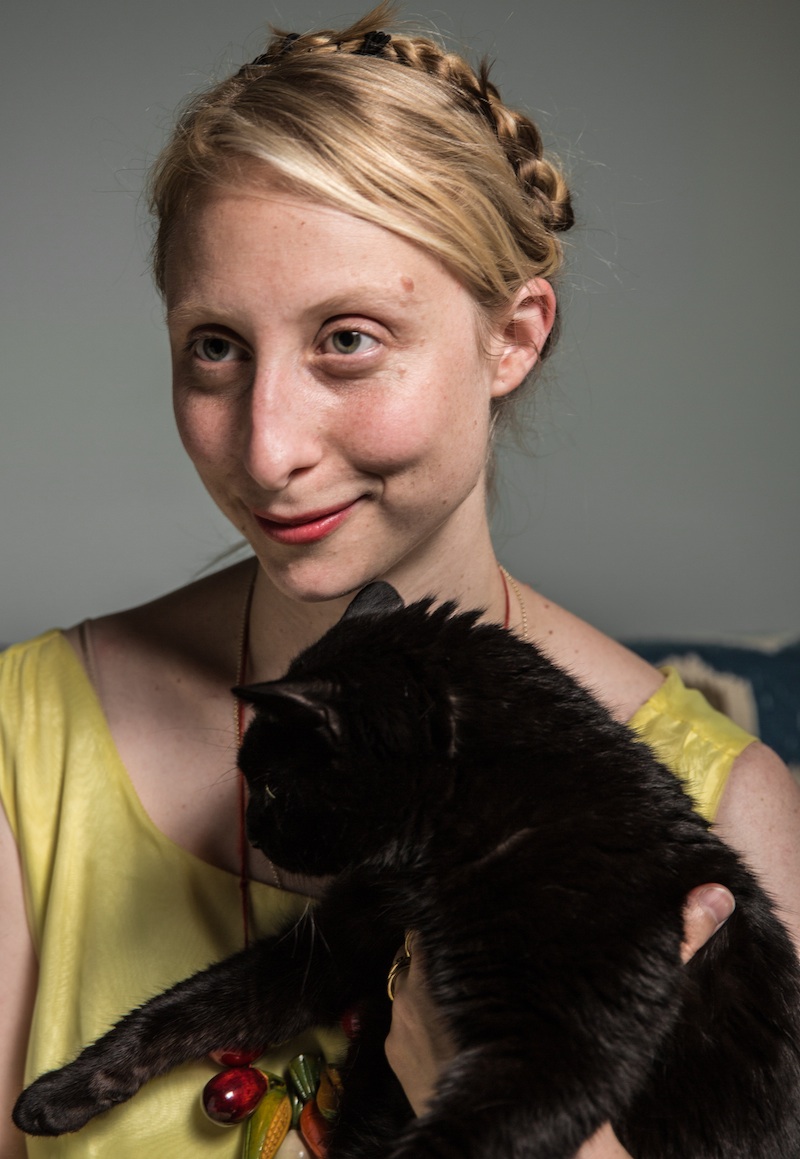
ABOVE: EMMA STRAUB. PHOTO BY FRANK SUN
The correlation between novels and vacation is so ingrained that it is rather surprising that the big publishing houses haven’t started sponsoring cruise ships—or at least done advertising on the sides of planes. It’s just a fact that a two-week trip to a beach proves one of those rare, uninterrupted opportunities to dive into a book to the extent that it overtakes life. Still, the “beach read” is a slightly disparaging mantle, denoting the kind of novel celebrated more for its compulsive turns than for its subtle wit or acuity. This month, Brooklyn writer Emma Straub gives the beach read a summer-school course on character development in her beautiful, hilarious second novel The Vacationers. Set in the Balearic island of Mallorca, the story follows the two-week vacation of the Post family—a Manhattan-based clan of cultural worldliness but also of quotidian post-nuclear-family grievances and erasures. Like any optimistic family with swimsuits packed in suitcases, they are forced to spend 14 days marooned in a seaside house together and undergo a reevaluation of their tangled relationships. Straub’s sentences flow so smoothly she creates a blazing tapestry that appears as effortless as it is deftly woven. I caught up with Straub after she had just come back from her trip to the West Coast on her book tour and asked her about the role of writer as journeywoman.
CHRISTOPHER BOLLEN: I’m a first-line collector. I go into bookstores and read first sentences from books. I have to say the first line of The Vacationers is one of the best I’ve come across in a while. “Leaving always came as a surprise…” How did that come to you? And in a broader sense how much of your writing depends on getting off on the right start from sentence one?
EMMA STRAUB: One of the trickiest parts about writing a book is figuring out where to start—originally, I had the book open with Sylvia, the 18-year-old, but after a draft, and talking about it with a smart friend, I decided that it needed to begin with Jim. I do think it’s important to find the right note right away, but that can be paralyzing. One has to just dive in! You can always find a perfect first line down the road.
BOLLEN: I’m a fan of books set on vacations—mostly because a foreign, unfamiliar place forces characters off their guard. They don’t exist in the camouflage of their usual surroundings. What were some of the interesting challenges of writing a novel set on vacation? Certainly, for example, you had to conceive of the Posts’ home in New York even though we’re never shown it.
STRAUB: Oh lord, not only did I conceive of the Posts at home, I wrote a whole novel about it. I’ve been working on this book— on what became The Vacationers—for ages and ages. It took me years to figure out exactly what you’ve just said, that they needed that unfamiliar setting to knock them out of their routine. I have so much backstory, it’s absurd. I could write a “Vacationers Behind the Music” with my eyes closed.
BOLLEN: What about Mallorca? I’m hoping you spent your entire advance on researching that island for months on end.
STRAUBL I wish! I went for two weeks, and in the off-season. Decidedly less glamorous. The island was quiet and lovely. I’m really glad that Mallorca was as gorgeous as I thought it would be—otherwise I would have had to start from scratch. I chose Mallorca because it was an island, and also because it had a rich artistic and literary history. It seemed like just the place the Posts would go.
BOLLEN: Another interesting quality about a vacation is that it’s time-stamped. It isn’t a permanent condition. Your first novel, Laura Lamont’s Life in Pictures, followed one character over the course of her life. Was this two-week vacation an opportunity to alter your tactics?
STRAUB: Precisely. Laura Lamont was all about the giant scope, that swooshing view across a woman’s life, and I wanted to give myself the opposite challenge. My original idea for this book was to have it all take place in a single night, but I ultimately decided that two weeks was what worked. It forced me to think much more about plot, and pacing, and action. I thought it was terrific fun, but then again, I’m the kind of person who always wanted extra writing assignments in school.
BOLLEN: Certain books have actually destroyed some of my vacations. There was amazing scenery going by and all I did was read. I ignored Croatia on a sailboat years ago by reading In Cold Blood. I have only a faint memory of Istanbul because I was reading Into Thin Air. Have you had any unbalanced book-travel pairing like that? And what are your favorite novels set on trips?
STRAUB: Ha, yes! My husband and I actually both read The Fault in Our Stars and Gone Girl on our Mallorca trip—we’d finished the books we’d packed, and picked those two up at the airport. It was really fun to sob through the former and then give it to my husband and watch him sob. As for novels set on trips, Elizabeth Von Arnim’s Enchanted April was a huge inspiration for The Vacationers. Stick a motley crew of folks in a beautiful place! An excellent model.
BOLLEN: The novel’s husband and wife, the senior Posts, are both employed—or unemployed—by the culture industry. Jim was a men’s magazine editor and Franny is a food writer. These are sort of dream jobs, but I wouldn’t describe either character as dreamy—they’re rather practical souls. Yet, much of the friction of the book is due to an affair that Jim had at work. Do you, as a writer, ever find yourself surprised by an action or a position that one of your characters takes? I find that you can actually be surprised by what you’re writing.
STRAUB: Thank you for saying that—I, too, think that they are practical, hard-working souls. Does that make them infallible? Of course not. One of the things I most enjoy about writing fiction is being surprised by something that one of my characters says or does. I’m not one of those “taking dictation” writers, but it happens anyway, where your people begin to wave at the outline and laugh.
BOLLEN: Poor Sylvia. Yes, it does seem so important to lose one’s virginity before college. There’s a beautiful part at the end of the book—and I won’t give it away—where she wants to take a photograph. I think you’re one of the writers of a generation with a great sense of empathy or care for your characters and for the truths of the awkward negotiations they face. When do you know that you have a character down in 3-D?
STRAUB: Sylvia will be fine, fine, fine. She’s a modern girl. I have great, great hopes for Sylvia Post. Maybe that’s when you know you have a character down—when you feel secure that they have a life outside of you, that they’ve learned to walk and are on their way. That’s how I feel about Sylvia—excited for what is to come. I have no idea what it is, but I trust her.
BOLLEN: I was talking about this book last week to a writer friend and she said, “Oh, Emma Straub a real Brooklyn writer.” I don’t think that was meant pejoratively, but I am beginning to wonder about this “Brooklyn writer” phenomenon (and where are all the “Queens writers”?) You do live in Brooklyn. Do you feel any special affiliation or think there’s anything behind this Brooklyn-writer sensibility?
STRAUB: Ha! Well, I grew up in Manhattan, so if anything, I’m a New York City writer. I do live in Brooklyn now, and I went to high school in Brooklyn, and so, yes, I do feel like a “real Brooklyn writer” in many ways. What does that mean, though? I don’t feel like an outsider, or an interloper. When I got to Madison, Wisconsin, where I did my MFA, Lorrie Moore told me to write as much about Wisconsin as possible, before it started to seem normal—that I could see more of its eccentricities with fresh eyes. Maybe I’m missing some of that in NYC because I’m a native, who knows. I’m always looking for a reason to go somewhere else. My husband and baby and I just spent a semester in Nashville, and we really fell in love with it. Will I ever leave for good? Could I be a “real Nashville writer”? I don’t know.
BOLLEN: Is there any other place—an island, a city—in the world you’d like to set a book?
STRAUB: So many—all the places I like to go, and so many places I haven’t been yet. Maine? Nashville? Hawaii? Only time will tell.
EMMA STRAUB’S THE VACATIONERS IS OUT NOW.
CHRISTOPHER BOLLEN IS THE EDITOR AT LARGE OFINTERVIEW MAGAZINE. HE IS ALSO A FICTION WRITER. HIS SECOND NOVEL, ORIENT, WILL BE RELEASED BY HARPER IN 2015.

